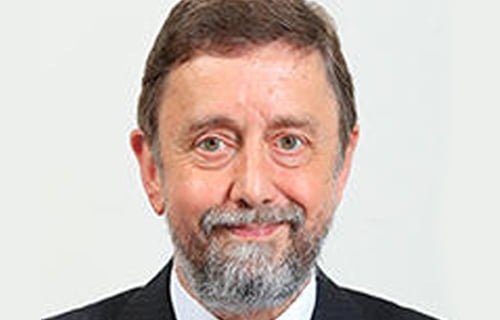
Prof. Mark Williams
Vice President for International Academic Exchange
International Christian University
Japan
April 9, 2022
The war in Ukraine continues. And the more we seek to look into the future to try and find a way out of what seems like an intractable problem, the more we find ourselves confronted by the various biblical overtures to ‘turn the other cheek’, to ‘love our enemies’, and so forth. It is one thing to echo such phrases as ideal scriptural exhortations; confronted with reality of the situation currently unfolding in Ukraine, it is quite another to act in true accordance with such spiritual values. And yet this is how we are called to respond. And, as I contemplate what this might mean in practice, both at the individual and the university level, I find myself increasingly drawn to the Christian call for reconciliation.
In their short, but extremely insightful consideration of this concept, Reconciling all Things: A Christian Vision for Justice, Peace and Healing, the two authors, Emmanuel Katongole and Chris Rice, offer some insights that can serve as a yardstick for our response to the current situation. To Katongole and Rice, ‘healing of the world’s deep brokenness does not begin with us and our action’ (142); it is to be found, rather, with God and His ‘gift of new creation’. The world that lies before us may appear broken; but, within what may appear as a barren landscape, God is always planting seeds of hope, even though often not in the places we expect or even desire. The conclusion for Katongole and Rice is clear: to them, reconciliation is ‘not a theory, achievement, technique or event; it is a journey’ (142), a journey that each of us is called to participate in unconditionally.
Here at International Christian University (ICU), events in Ukraine have given us pause to stop and rethink the journey on which we are embarked. Our journey began in the immediate aftermath of WW2 when our school was founded as a collaborative project between Japanese and US funders determined to build a monument as a prayer for peace in the post-war world. Since then, ICU has maintained its commitment to ‘the cultivation of internationally-minded citizens who perform service to God and humankind and make contributions to lasting peace’. In all this, we have continued to strive to identify those ‘seeds of hope’ and, in practical terms, this has led to our recent programs, generously supported by the Japan ICU Foundation (JICUF) in New York, to take in students from those countries where higher education has been most adversely affected by warfare. This led to the initiation of our Syrian Scholars Initiative (SSI) which has seen eight Syrian students register here – and is behind our current initiative to accept a group of students from Ukraine.
Another related initiative is, however, more closely related to our membership of ACUCA. At the suggestion of some of our colleagues at Underwood International College, Yonsei University in Seoul, we are looking forward to starting a new student exchange program whereby some ten students from each campus will come together for the entire autumn term, spending the first five weeks on our ICU campus (provided COVID allows) and the second half on the UIC campus undertaking a series of classes under the overall rubric of ‘Reconciliation: Towards a New Generation of Japan- South Korea Relations’. Most of these classes will be offered by faculty members of the two institutions (switching from face to face to online mode and vice versa as the students shift location); but there will also be an ‘omnibus’ course in which practitioners in the sphere of reconciliation from around the world will be invited to offer guest lectures and lead student discussion. At the same time, the group will take part in a series of study trips, all designed to heighten their awareness of the underlying issues that all too often serve as an impediment to genuine reconciliation.
We are excited by the opportunities offered by this program and remain persuaded that it will build on our determination to ‘make contributions to lasting peace’. As we continue our respective journeys, may we use these various initiatives to nurture those ‘seeds of hope’.
About the Author: Dr. Mark Williams took his BA in Japanese Studies at the University of Oxford and his Ph.D. in Japanese Literature from the University of California, Berkeley in 1991. He served as the President of the British Association for Japanese Studies between 2008-11. Dr. Williams currently serves ICU as its Vice President for International Academic Exchange.
About International Christian University: International Christian University holds as its mission the establishment of an academic tradition of freedom and reverence based on Christian ideals as well as the cultivation of internationally minded citizens who perform service to God and humankind and make contributions to lasting peace. As a university founded through international cooperation, ICU pursues three commitments expressed in the university’s name: International, Christian and Academic Commitments.
